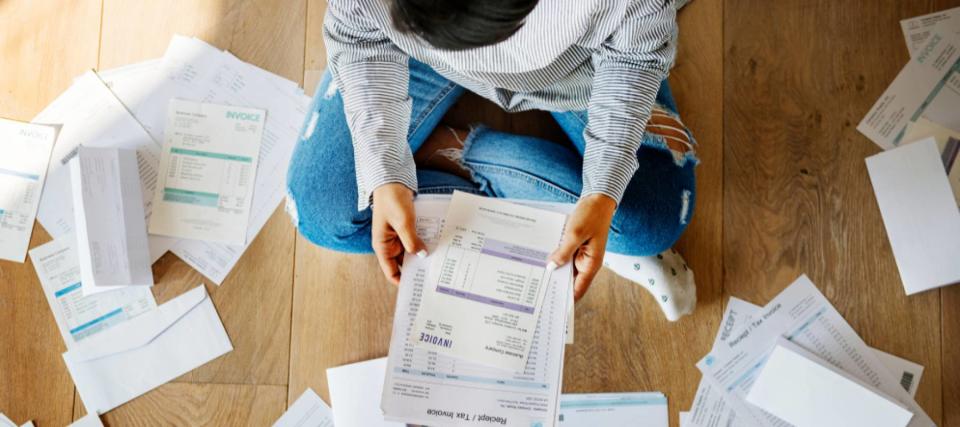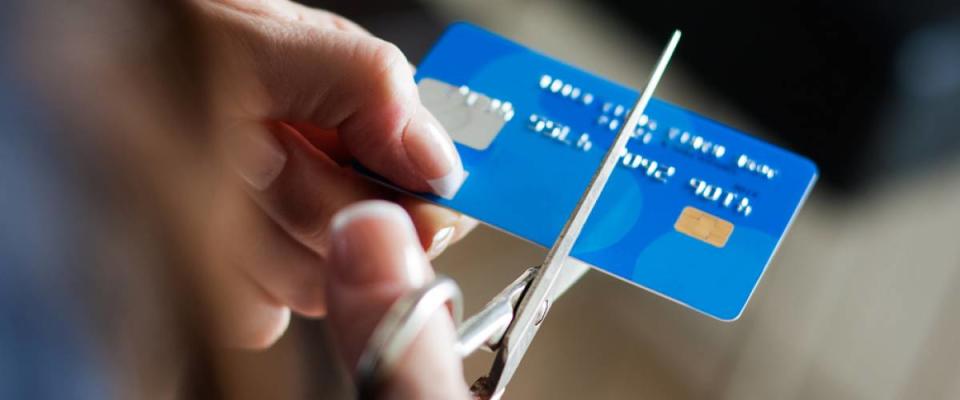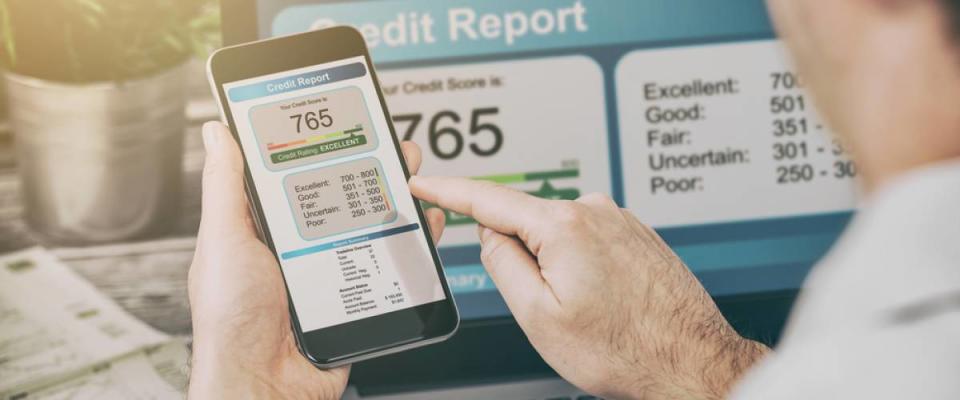4 Steps to End Your Credit Card Debt — Even If You Owe $100,000

If you owe $1,000, $10,000 or even $100,000 on credit cards — that’s a lot for anyone to take on.
But it’s not the end of the world. No matter what you may be feeling right now, it is possible to pay off your debt within a reasonable time-frame — it doesn’t have to be a never-ending grind.
Just follow these simple steps and watch your debt shrink before you know it.
1. First, stop paying your credit card bills

If you're holding debt on your credit card, it's likely that most of what you owe is just interest. And that interest just keeps pushing your total debt higher and higher. Seeing your interest compound every month can kill your morale.
That’s why the first step is to stop using your credit cards and use a debt consolidation loan to pay your whole bill this month.
Seriously — all of it.
Consolidating your credit card debt onto a loan with a much lower interest rate is the very first step on the path to freedom. You’ll end up saving thousands of dollars in interest.
Repayment plans on debt consolidation loans typically run between 24 months and 84 months, and the interest rates can start as low as 4.99% APR. Meanwhile, it’s not uncommon for credit cards to have an interest rate over 15% on unpaid balances.
There are sites that simplify the process and let you compare up to 10 lenders at a time so you can find the lowest rate.
Wondering if you’re eligible? Checking won’t affect your credit score at all — and can end up saving you loads of money in interest.
2. Shrink your monthly bills

When paying down debt, it helps to try to reduce monthly spending and cut costs on your recurring bills. Print out your last few credit card statements and figure out where your money is going — and cut out costs you can live without.
Aside from rent or your mortgage, your car insurance payments probably rank pretty high on the list for monthly expenses. It’s time to pump the brakes.
If you're not shopping for car insurance every six months, you're probably paying too much. That sounds like a lot, but consider this: The average driver spends around $2,390 a year on car insurance. If you’re not looking for a discount on that rate, you’re leaving money on the table.
With the stakes that high, can you really afford not to shop around?
You might be thinking that it'll take forever to find a lower cost policy with all the perks of your existing coverage, but rate comparison sites make that a cinch. You'll be connected with several insurers without the extra hassle of contacting each one separately.
Who doesn’t love to save a bit of extra cash? You’ll be able to pay down some of your debt with the extra money you save.
3. Kick overdraft fees to the curb

Cash back is one of the greatest perks of owning a credit card. Sometimes, chasing cash back and credit card rewards can even be what pushed you too far in debt in the first place (no judgment, it happens). But once you consolidate your debt and start paying it down, the absolute last thing you want to do is start using your credit cards again.
So why don’t you get a cash back debit card? There are several available, and some can even offer up to 10% cash back on your everyday purchases — purchases made with money you actually have.
If you're cutting out unnecessary expenses, there's no reason you shouldn't shop around for a better bank, too. Take advantage of the fierce competition between lenders. Look for online banks or specialized accounts that earn you interest on your savings — and drop the miscellanous ATM fees and overdraft fees that some fossil financial institutions are clinging to.
There's one disruptor in particular that swears by its "pay what you think is fair" fee structure.
4. Start keeping score

Getting your debt under control is just one part of taking care of your finances. Another important part is your credit score.
If you’ve been in debt for a while, it may be a little scary to check your score.
You should look, though — and it’s easier than ever to check your credit score for free.
Taking advantage of a free credit monitoring service has boosted some Americans' scores by up to 200 points.
Credit monitoring services let you see your score whenever you want, and let you review your credit report and history with just the click of a button. All your recent bills and debts show up in one place, too. No more missed payments or late fees.
It’s entirely possible to hit the reset button on your finances. Why begin tomorrow when you could start today?

 Yahoo Sport
Yahoo Sport 






































